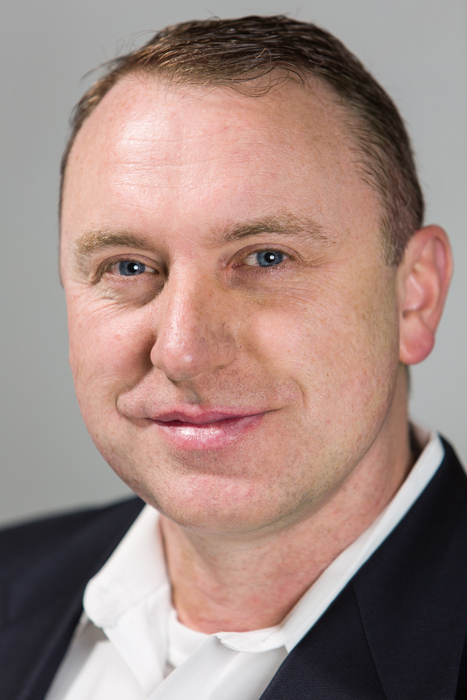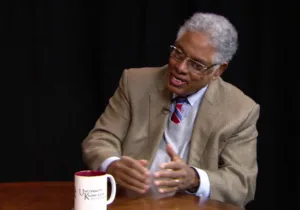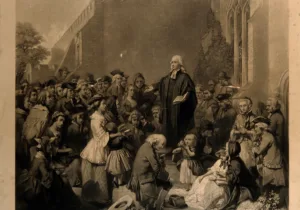On Thursday, President Donald Trump delivered a speech in Switzerland at the 48th annual meeting of the World Economic Forum, better known as the “Davos Forum.” Here is what you should know about the famous meeting of global leaders.
What is the “Davos Forum”?
The “Davos Forum” is the nickname for the annual meeting of the World Economic Forum (WEF) in Davos-Klosters, a town in the Swiss Alps. It bills itself as the “world’s foremost platform for public and private cooperation.”
What is the World Economic Forum (WEF)?
The World Economic Forum (WEF) is an international non-profit foundation headquartered in Geneva, Switzerland whose mission is to “improve the state of the world” by engaging “the foremost political, business and other leaders of society to shape global, regional and industry agendas.”
The group claims to be “independent, impartial and not tied to any special interests.” The WEF also has offices in New York, San Francisco, Beijing, and Tokyo. The board of trustees includes former Vice President Al Gore, Jack Ma (CEO of Alibaba), Indra Nooyi (CEO of Pepsico Inc.), the famed cellist Yo-Yo Ma, and Queen Rania Al Abdullah of the Hashemite Kingdom of Jordan.
How did the WEF get started?
The forum was founded in 1971 by business professor Klaus Schwab and was originally called the European Management Forum (EMF). The original focus was on helping European businesses catch up with management practices of the United States.
Two years later, the collapse of the Bretton Woods fixed exchange rate mechanism and the Arab-Israeli War led the EMF to expand the focus of the meeting to economic and social issues. Political leaders were invited for the first time in January 1974. In 1976, the organization introduced a system of membership for “the 1,000 leading companies of the world.”
The European Management Forum became the World Economic Forum in 1987. In 2015, the WEF was formally recognized as an international organization.
Who is Klaus Schwab?
Schwab, founder and executive chairman of the WEF, is a German who taught business policy at the University of Geneva, Switzerland. He has doctorates in both engineering and economics from universities in Switzerland, and a Master of Public Administration from the John F. Kennedy School of Government at Harvard University.
Along with the WEF, he and his wife Hilde created the Schwab Foundation for Social Entrepreneurship, which “seeks to identify, recognize and disseminate initiatives in social entrepreneurship that have significantly improved people’s lives and have the potential to be replicated on a global scale.” In 2004, he established the Forum of Young Global Leaders (for leaders under 40), and in 2011 created the Global Shapers Community (for potential leaders between the ages of 20 and 30). The purpose of the two foundations is to “integrate young people as a strong voice for the future into global decision-making processes and to encourage their engagement in concrete projects that address social problems.”
Is Davos the only annual meeting of the WEF?
No, it’s just the most famous of the meetings and is held at the beginning of the year. The WEF also has an “Annual Meeting of the New Champions,” which focuses on innovation, science, and technology and is held in the People’s Republic of China.
Their “Annual Meeting of the Global Future Councils” is held in the United Arab Emirates and “brings together the world’s leading knowledge community to share insights on the major challenges facing the world today.” There is also the “Industry Strategy Meeting” which “brings together Industry Strategy Officers to shape industry agendas and explore how industries can shift from managing change to pioneering change.”
The WEF also hosts regional meetings and national strategy days which “provide focused engagement on the issues dominating regional and local agendas.”
What is “Davos Man”?
The term “Davos Men” is credited to political scientist Samuel P. Huntington in his 2004 essay “Dead Souls: The Denationalization of the American Elite.” In the article, Huntington wrote:
The rewards of an increasingly integrated global economy have brought forth a new global elite. Labeled ‘Davos Men’, ‘gold-collar workers’ or…’cosmocrats’, this emerging class is empowered by new notions of global connectedness. It includes academics, international civil servants and executives in global companies, as well as successful high-technology entrepreneurs.
Estimated to number about 20 million in 2000, of whom 40 percent were American, this elite is expected to double in size by 2010. Comprising fewer than 4 percent of the American people, these transnationalists have little need for national loyalty, view national boundaries as obstacles that thankfully are vanishing, and see national governments as residues from the past whose only useful function is to facilitate the elite’s global operations. In the coming years, one corporation executive confidently predicted, “the only people who will care about national boundaries are politicians.”
Today, the term Davos Man (or Davos Woman) is often used (like the term “globalists”) to derisively refer to transnational, cosmopolitan elites.
Who is attending Davos 2018?
There are more than 3,000 participants from more than 110 countries at the latest event. Of that number, about 340 are public figures, including more than 70 heads of state and government and 45 heads of international organizations.
About 1,900 are business leaders, 230 are media representatives, and almost 40 are “cultural leaders” (e.g., actress Cate Blanchett, singer Elton John).
—
Joe Carter is an adjunct professor of journalism at Patrick Henry College, an editor for several organizations, and the author of the NIV Lifehacks Bible.
Photo Credit: Prime Minister Theresa May meets with President Trump while at the World Economic Forum in Davos. By 10 Downing, via Flickr.







 Sponsor a student for Christianity & National Security 2024
Sponsor a student for Christianity & National Security 2024